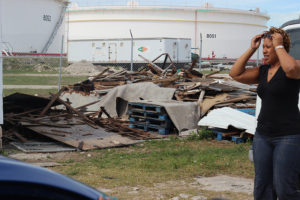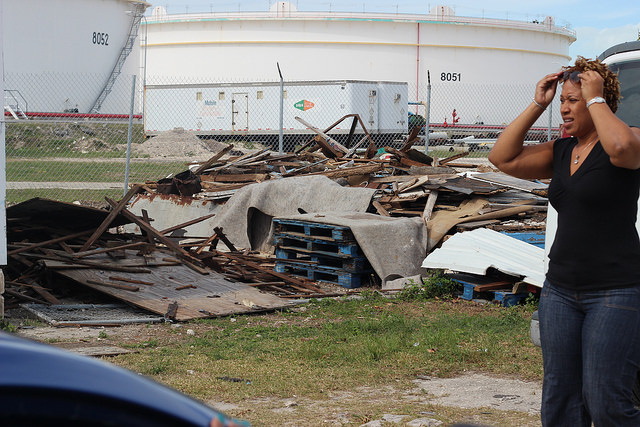 The memories I have are still very vivid.
The memories I have are still very vivid.
The home with numbers on the front of them.
The empty houses.
The fallen trees.
The deserted neighborhoods.
The replaced levees.
The eerie silence in certain parts of town.
This was the reality I encountered when I arrived in New Orleans four years after Hurricane Katrina desolated the metropolis.
At the time of my trip, I was working as a Site Coordinator for an afterschool and enrichment program. During Spring Break, it was customary to take a group of students on a service/learning trip. We would visit local landmarks, have a lot of fun, eat tons of food and perform community service.
Our trip to New Orleans would come later in the week after stops in Atlanta and Alabama. In 2009, Facebook had taken off, Twitter was just a year old and Instagram hadn’t even been conceived. The national news had long moved on to other stories. Four years later, I expected things to be back to normal but that couldn’t be further from the truth.
The tourist area – you know Bourbon Street, the French Quarter, the Riverwalk, casinos were all bustling with activity. The buildings looked great (although some had only had their exterior fixed), the lights were shining bright and the streets were filled with people. However, if you took a short walk just a few blocks over, you would encounter buildings with missing windows, boarded up doors and reminders of the devastation the city had encountered.
It was a noticeable contrast.
People in other parts of the country had long moved on with their lives. They were concerned about the next big thing that was taking place or had just passed. They were providing aid in the newest location that had suffered a natural or man-made disaster. And some were just consumed with their own situations.
While in New Orleans, we were given a tour. We were shown all the locations you see on tv, advertised, but we were also taken into the heart of the city. The heart that many had to flee from when water started rising at levels that had never been seen before.
It was on this tour that I saw the houses with numbers on them representing the number of people that had been found in the home, sometimes deceased. We saw the levees that failed to protect the city when water gushed towards them so fast that they couldn’t withstand the pressure sending a steady river like stream rushing into the 9th Ward. We saw neighborhoods that resembled ghost towns. And we saw a memorial that represented how high the water rose in one of the most impoverished parts of the town.
Seeing this first hand was like a punch in the gut.
I had no clue things were still that bad years later.
However, not knowing isn’t surprising. It happens all the time. We’ve become so accustomed to bad things happening in the US that we mourn and rally in the immediate aftermath then after two weeks, and that’s being generous, we have channeled our energy elsewhere.
I saw the same thing happen in Lumberton, NC after Hurricane Matthew. When I arrived with family one Saturday to deliver items from the generous people in my hometown of Lexington, NC I was one of maybe three people to come that day with aid. It was approximately three weeks after the hurricane had come through and dumped enormous amounts of water on the area causing massive flooding. And in just a short amount of time, they were already seemingly forgotten about.
That’s how things work around here. I can’t even really say it’s anyone’s fault because there are things that take place after certain events that deserve media attention too. At the same time, people in these ravished areas still need help, even years later.
Recovering from disasters is a lengthy process. It can take decades for cities to recover. Remember, it took decades to establish it.
Don’t wait on the media to remind you about what’s going on. Find out for yourself. Many cities can still use help across the country. Now is a perfect time to do some research and see how you can play a part in helping your fellow brothers and sisters recover. They’re still depending on you.

There are no comments
Add yours